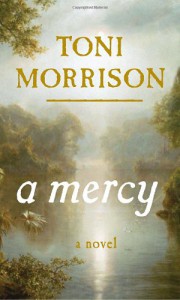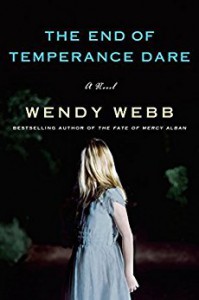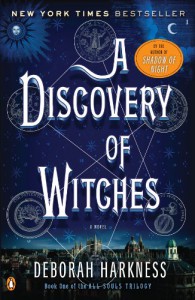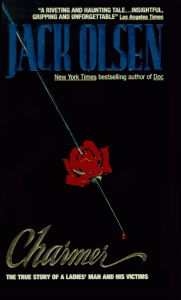There Might Be Cupcakes Podcast: Episode 59: Commingled Gloom and Grandeur

Creator, producer, and voice of the There Might Be Cupcakes podcast. Bluestocking. Writer. Virginian. Mountain dweller. NetGalley reviewer. Librarian of The Dollop podcast.
In which Carla explores a favorite horror author of Victorian England, and finds an marvelous polymath, an LGBTQ icon, and a woman who rescued ancient Egypt and explored terra incognita.
Show Notes:
Story read: “The Phantom Coach”, Amelia B. Edwards
Recommended Reading:
https://www.goodreads.com/author/show/62851.Amelia_B_Edwards
Referenced episodes:
Sources:
Egypt Exploration Fund: https://www.ees.ac.uk
Historic England: Amelia’s gravesite
University of Pennsylvania: 1 and 2

I have a question about the interpretation of the denouement, of Florens’ denouement.
I interpreted the violence between The Blacksmith, Florens, and Malaik as:
Florens attacked The Blacksmith, lashing out at him and wounding him with his tongs, and then attacked Malaik and killed him. Malaik, taking her place (in her eyes), was the symbolic stand-in for her brother, so she destroys him this time. The Spark Notes for A Mercy, however, state Malaik lived. https://www.litcharts.com/lit/a-mercy ?
 3.5
3.5 “...the yellow thread of memory...”: very sharp foreshadowing
“...the yellow thread of memory...”: very sharp foreshadowing Strangely uneven, with a couple of small continuity errors. Also, there’s the feminism thing I noted: Diana is always being hovered over or scooped up in someone’s arms or watched over or protected or ordered about...
Strangely uneven, with a couple of small continuity errors. Also, there’s the feminism thing I noted: Diana is always being hovered over or scooped up in someone’s arms or watched over or protected or ordered about... Minus one star for the misleading (and arguably offensive) title and subtitle. The only way "Ladies' Man" applies is if you are looking at the "Charmer" as an incel pickup artist. Which may be the point--I don't know. He's a scam artist, a profligate user of young women, and a rapist/murderer. So perhaps the title and subtitle are in supremely bad taste, or just ironic. I know that if the man in question had raped or used me, or murdered someone I love, I would not be pleased with such irony. This guy is a fast-talking charmer in the fact that he got his own ways for so long--but still. As the victim of sexual and domestic violence myself, it just sticks in my craw. I'm usually not so sensitive to such things, so when something like this really does bother me, I pay attention.
Minus one star for the misleading (and arguably offensive) title and subtitle. The only way "Ladies' Man" applies is if you are looking at the "Charmer" as an incel pickup artist. Which may be the point--I don't know. He's a scam artist, a profligate user of young women, and a rapist/murderer. So perhaps the title and subtitle are in supremely bad taste, or just ironic. I know that if the man in question had raped or used me, or murdered someone I love, I would not be pleased with such irony. This guy is a fast-talking charmer in the fact that he got his own ways for so long--but still. As the victim of sexual and domestic violence myself, it just sticks in my craw. I'm usually not so sensitive to such things, so when something like this really does bother me, I pay attention.

This book is not for everyone. The authors are very honest about what Kermit Gosnell, and what Gosnell did went far beyond abortion. He murdered and decimated. If you are uncomfortable with Ed Gein’s story, do not read this book, for Gosnell was the same type of hoarder.
This book was finely investigated, so I only deduct one star for these reasons:
* the unnecessary, in my opinion, long chapter lecturing the reader on proper journalistic practices. It’s near the end of the book, so by the time it is reached, I as the reader have the full picture of the bizarre news dodge of this story. I don’t need a mini journalism class to drive it home.
* the occasional use of “pro-abortion” in place of “pro-choice” in general (the only person I have run across who is truly pro-abortion is Dr. Gosnell, for pro- implies enthusiasm, gusto); and, in companion with this, the introduction written by a member of the Duck Dynasty family. This case is so vile, it didn’t need to be politicized at all, in any way. Just tell the reader what Gosnell, his wife, and his staff did. You’ll probably change a lot of minds on abortion. I think these leans of bias make the annoyance of the lesson of the unbiased Fourth Estate stronger. To truly make this point, the book should have carried absolutely no agenda—including no biased language (a no-no in basic journalism) and no biased celebrity endorsement.
I can’t say this enough: this is an important case, and, despite its above flaws, an important book. But I am going to type a phrase below that was in the crime scene report about Ed Gein, and please let it be your litmus test for whether or not you should read this book.
That phrase is: cup of noses

I was quite excited to spend my monthly Audible credit on this book; what a fascinating idea--reframing American history by examining our relationship with our landmark haunted locales.
I, unfortunately, have returned it to Audible.
Each house is well-chosen: the Lemp mansion, for example, as a haunted touchstone in American history and culture...
and then debunked as an actual, or at least a full as-known haunting by the author. Chapter after chapter.
I hung on through the underlayer of smugness until the author stated repeatedly that Spiritualism didn't last, it was dead, it was no longer a thriving practice in the United States. Then I stopped reading. Why? I had reached the intolerable level of poor scholarship and research. There is an entire town of Spiritualists who live and work as such, in plain sight, and have done so for years: Lily Dale. Both a documentary and a book are available about Lily Dale, New York, and both are easy to find:
Lily Dale: The Town That Talks to the Dead * Christine Wicker
HBO Documentaries: No One Dies in Lily Dale
Side note: The author was also treated well by the Lemp Mansion's hosts, taken on their Haunted Tour, and given the choice room--one that is on the tour because it is reported to exhibit so much phenomena. His entire account of his Lemp tour and stay was mocking, in my opinion, disdainful of staff, location's history, and even his fellow tour group members! I feel as if I have been subjected to a history book written by a hipster: "Look, we're supposed to be enjoying this. OMG, all these people are really enjoying this! I cannot wait 'til I return to my cocktail and typewriter." Combined with the shoddy research, and some debunking claims without citations, this book is disappointedly unprofessional.
Also posted at The Dollop: American History Podcast
 I have decided to not finish this book for many reasons, but the final straw was this thoughtful and heartfelt essay written by Dylan’s English teacher, the one who received the eerie short story he wrote:
I have decided to not finish this book for many reasons, but the final straw was this thoughtful and heartfelt essay written by Dylan’s English teacher, the one who received the eerie short story he wrote: William Peter Blatty, one of the few authors to create a before and after in the American cultural psyche, died yesterday at the age of 89. The Exorcist and its companion novel, Legion, are not given enough credit for being not just horror novels, then movies, but also mirrors held up to human nature--as seen in this passage from The Exorcist.

The very best horror serves this or similar purposes: grotesqueries or terrors as mirrors. The Exorcist and Legion made us face our fears of bad things happening to good people, of the looks of innocence masking evil, and of our inner sanctums, our homes, not being safe after we lock the doors at night.
Thanks, Mr. Blatty. Rest.